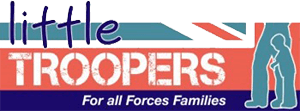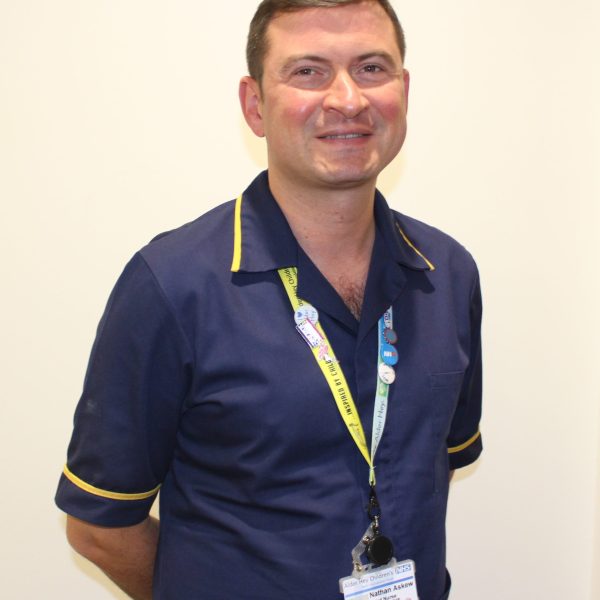Alder Hey Children’s Hospital Trust
Two years ago, the team at Alder Hey Children’s Hospital established a dedicated Armed Forces Network. Chief Nursing, AHP and Experience Officer, Nathan Askew, spoke to Little Troopers about how the network helps staff to personalise care for military children and their families.
Tell us more about your role at Alder Hey Children’s Hospital?
As the Chief Nursing, AHP and Experience Officer, a key part of my role is making sure that every child, young person and their family have the best experience possible during any visits, and that the care they receive is safe and of a high standard. I also support our Armed Forces Network as the Executive lead and am passionate about ensuring that we support the families of those who serve and have served to be supported and not be disadvantaged by being a military family.
How did you hear about Little Troopers?
We have been set up as a Network in the hospital for two years now and during the set-up we have been looking at what is available to the families of the Armed Forces community. We located Little Troopers online and met with Louise at a Veterans Aware Conference in 2024 which further aligned the thinking that we would be able to work well with Little Troopers.
Explain what forces families can expect when they are admitted to hospital. How do you identify if the child has serving parents?
Our Trust has an Electronic Patient System which on triage asks the families if they are part of the Armed Forces Community and if they would like us to note this on the records. If the family says ‘yes’ then a Special Indicator Flag is updated and any family already in the Referral to Treatment pathway will have their current position maintained. Of course, clinical need is always taken into consideration.
Why do you think it’s important to identify if a child is from a military family?
Military children and young people have experienced so much, such as a loss of belonging, and security. They have faced large amounts of change and challenge, due to their parents postings, and deployments, so ensuring that the child is treated as an individual is vital to support their visit in the Trust. We feel that if the environment is right, the child will feel supported and empowered to advocate for themselves. This in turn, will put family members at ease with a sense of comfort that they are being listened to and cared for.
What additional support do you provide for military children?
We have a great team of Matrons who are aware of lots of external agencies who are able to support with housing, and our volunteers offer to sit by the bed to read stories to children, giving their parents a break from the ward environment. We are able to purchase toiletries if the families need to stay overnight. We also offer a befriending service to the parents of the children on the wards so if they want to talk about their military service they meet like-minded individuals who either have served or are still serving in the Reserve Force.
Does that support differ depending on the child’s age, their illness / injury or the time they spend in hospital?
The teams within the hospital cater to the individual and will provide personalised support to each child and their families. Our intranet pages has contact details for members of the Armed Forces Network and know that if they need anything different they can contact us and we will help with additional support such as reading to the children, linking them in with outside agencies
Do staff have a good understanding of the unique challenges forces children and their families sometimes face?
Our network is starting to gain momentum and the understanding of the challenges is becoming more apparent. We have been visible within our atrium on Armed Forces Day and have a Remembrance Service in November. Curiosity is growing, we have informed the hospital community about the historical links between Alder Hey hospital and the local community. We are already planning our Armed Forces Day for 2025 with an added emphasis on the child’s journey within the armed forces.
What advice would you offer to any healthcare professionals working with military children?
Have an arsenal of information to hand about what your locality has available for the parents and also what is available to the children. If the parent feels like they are also thought about when their child is in hospital and they have at least one bit of anxiety taken away from them. Let them know about Little Troopers and all its resources.


